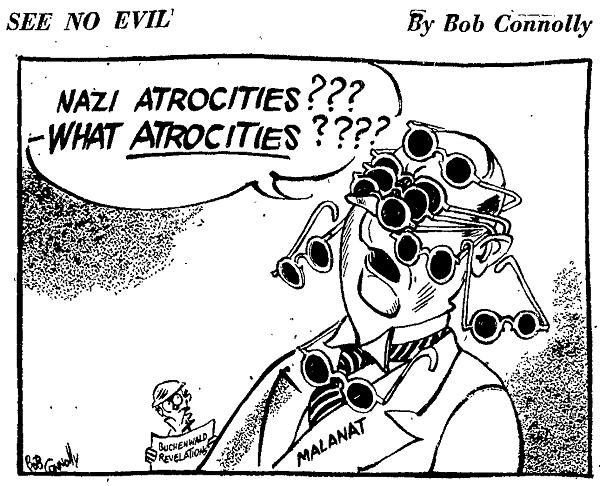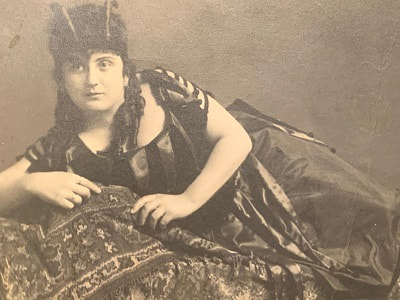by dmitri abrahamsDmitri Abrahams looks at how the South African media reported on the Holocaust between April and November 1945. He suggests that the different reportage reflected not only the ethos of the publication and their stance on World War II, but also the deeply polarised thinking of the papers’ respective readership -- with regards to both the war as well as what was happening back home in South Africa.  A cartoon from The Rand Daily Mail (1945) lampooning DF Malan's attempts to deny Nazi atrocities. A cartoon from The Rand Daily Mail (1945) lampooning DF Malan's attempts to deny Nazi atrocities. THE liberation of concentration camps in 1945 and the revelation of atrocities committed by Nazi Germany caused major upset in South African society. As a part of my dissertation on Holocaust memory in South Africa I analysed how the South African press reported on and understood the liberation of the concentration camps. The liberation of the concentration camps by Allied forces happened during an uncoordinated, chaotic period in which information emerged piecemeal. The press had already reported on the persecution and mass murder of European Jewry from at least 1942 so when the news of the liberation of the camps reached South African shores, they had some background with which to engage with the topic which suddenly flooded the pages of their daily and weekly newspapers.
5 Comments
7/26/2021 3 Comments The forgotten Jewish victims of World War II: Reorienting the focus of South African Jewish commemorationBy Michael Kransdorff
|
|

